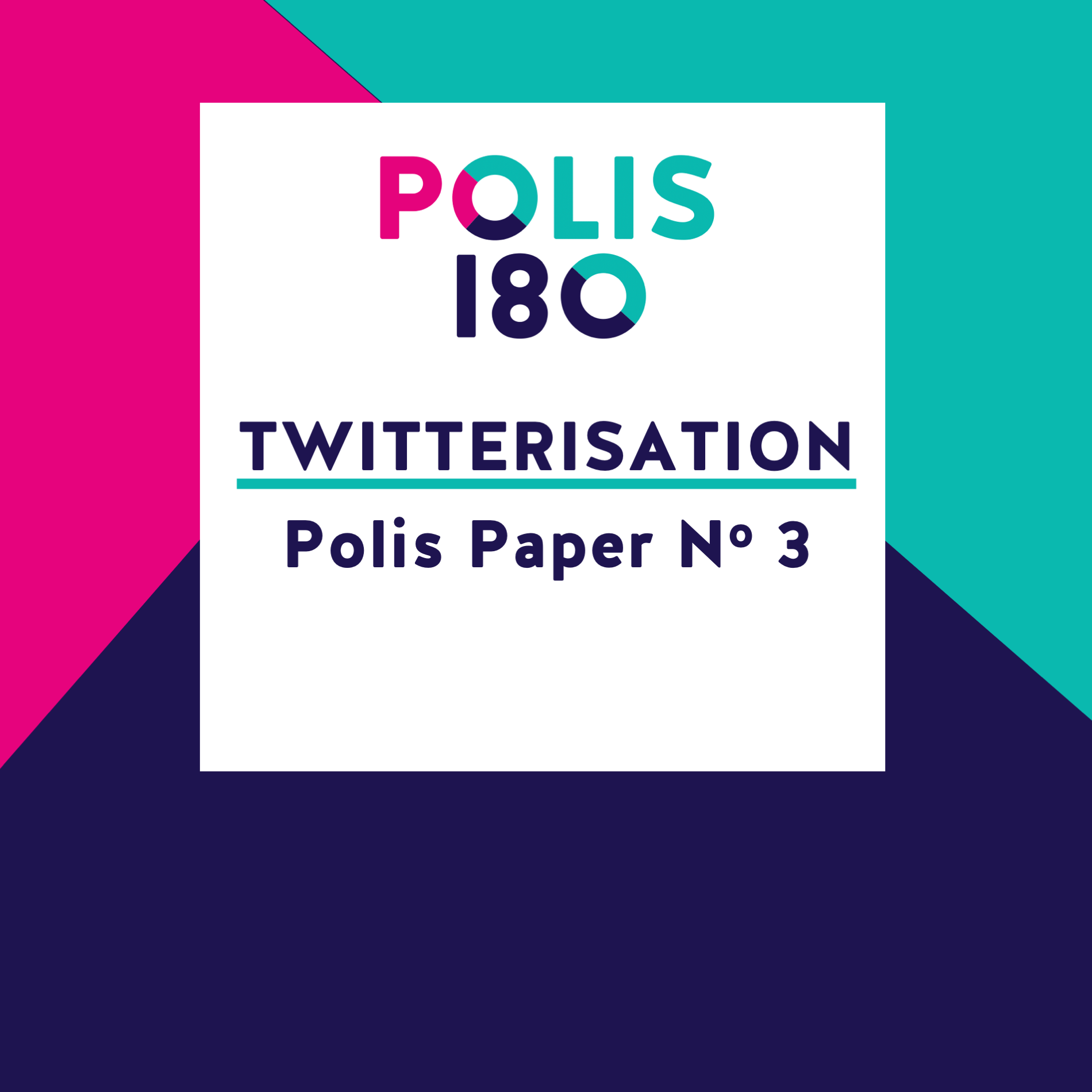TWITTERISATION
THE EUROPEAN
AUDIENCE IN THE AGE
OF SOCIAL MEDIA
There is no shortage of political challenges in Europe. How to deal with mass migration from the Middle East and North Africa has become a divisive issue. The “Brexit” vote by UK citizens looms large, and anti-establishment parties question the legitimacy of Europe, calling for a “my nation first” policy. Political debates are increasingly influenced by “fake news” that is often reiterated by high-level politicians and which makes fact-based public discourse more difficult. All major political decisions in European democracies are validated by national elections in one way to the other – even by those voters who have low confidence in European-style democracy or the democracy in their countries. The message of anti-establishment parties is gaining traction, and political action at the voting booth to unmake Europe is a real threat. Will it materialize?

In this short study, the Polis180-authors Daniel Hardegger and Niklas Anzinger will look at political participation and what Europeans want from the EU. They will look at profiles of the politically engaged, people with pro- and anti-EU attitudes and different demographic profiles to analyse their preferences for EU governance and political action. They will also show how different groups of people can be engaged most effectively and make suggestions how policymakers can shape public discourse.
The Authors
Daniel Hardegger
Daniel Hardegger is a PhD Candidate at the London School of Economics (LSE). He is coinitiator, co-founder and board member of Polis180. He is Managing Director of Negotiations.CH and established various networks, like UNYANET, and worked for publishing companies and the Swiss Foreign Department. He is a strategy, negotiation, communication consultant for companies, foundations and networks as well as national/international organisations. He has an BA in German Language/Linguistics and an MA in History from the University of Bern.

Niklas Anzinger
Niklas Anzinger leads the emerging technology research team at Dalia and is a member of Polis180. Niklas worked on energy, transport and infrastructure issues as a consultant at Roland Berger, as a researcher at the Hertie School of Governance’s Chair for Energy and Infrastructure and as an analyst for the Energy and National Security Program at the Center for Strategic and International Studies. Niklas holds a BA and an MA/MPP in economics, international relations and public policy from the University of Bayreuth, the Maxwell School of Citizenship and Public Affairs, and the Hertie School of Governance.

